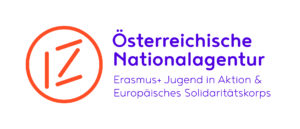Did you know that Sex Education…
…is more than “the birds and the bees.”
When people and the media talk about sexuality, they are often talking about heterosexual intercourse and/or reproduction. To this effect, sexual education in the classroom is often more or less a biology lesson. But sexual education is not just about anatomy and technical terms. It is about a holistic view of sexuality that includes:
- talking about feelings and being able to recognize bodily sensations
- finding the right words to talk about sexuality
- understanding consent and being able to set boundaries
- recognizing and reflecting upon gender roles
- being able to ask questions relevant to living environments
- receiving safe and reliable information to create one’s own opinion and position
These are a few of the aspects that sexual education in a professional setting takes into account alongside anatomy and contraception.
More about that:…
…happens 24/7
Sexual education also encompasses learning about gender roles, relationship and family forms, dealing with feelings, beauty ideals, and many more topics. We are constantly learning about these things in conversations with family and friends, in social media, magazines, films, in the news and in advertisements.
The communication expert Paul Watzlawick coined the sentence “One cannot not communicate.” Education happens through communication. And therefore, it is also not possible not to have sexual education. We learn and educate about gender roles, beauty ideals, relationship and family forms, taboos and how to deal with feelings in different situations, for example:
- when it is considered who should wear pink and who shouldn’t
- when movements like #metoo become big in the media
- when someone gives a compliment about someone’s clothing or figure
- when we say the word menstruation loudly in a café
- when we think about which words to teach children for their genitals
- when the purchase of tampons or condoms is uncomfortable
…is a part of violence prevention and health promotion.
In order to recognize dangers as such, it is important to have a foundation that can be learned through sexual education. This foundation consists of, for example:
- the ability to recognize and name body awareness and to articulate feelings
- the perception of boundaries and ability to set these boundaries
- the ability to name all body parts
- the strengthening of self-effectiveness and resilience
- information about children’s rights
The establishment of programs to aid children and young people requires bringing together sexual education, violence prevention and health promotion in daily practices. It is not only the direct support for the development of these skills that works in a preventative and health positive way, but the frameworks in which people live freely can also help achieve these goals.
…follows standards of quality.
Sexual education is based on scientific knowledge and national or Europe-wide standards and legal rights like:
- human rights standards
- sexual and reproductive rights
- standards for sexual education in Europe
- fundamental decree of sexual education
The standards for sexual education in Europe that our professional understanding of sexual education is based upon were published by the WHO in collaboration with the Federal Centre for Health Education in Germany. This concept is directed toward policy makers, educational institutions, health services and other experts.
More about this: …
…affects all age groups.
Sexuality plays a role in every stage of life—in different ways. Age appropriate and developmental sexual education is applied sensitively to different target groups. Children are often interested in where they come from and how a baby grows and comes out of a stomach. Adolescents are often occupied with questions of identity, their effects on others, being in love and how their bodies change during puberty. Sexual education doesn’t end there, though. Other topics become more relevant for adults like relationship forms, lived sexuality, family formation, raising children, dealing with relationships ending, long term contraception and menopause.
…is linked to a professional attitude.
Sexual education imparted by sexual educators is tied to occupational roles and professional attitudes. It occurs in different settings like school workshops, workshops in extracurricular youth work, parent nights, continued education for organisations, university student contexts, settings with educators from all divisions present, lectures, media interactions, etc.
Sexual education in an occupational context differentiates itself from daily (and very important) discussions about sex and sexuality. Professional organisations that offer continued sexual education advocate a reflective attitude and work in addition to external resources and conversations.
…stay tuned with our project newsletters


